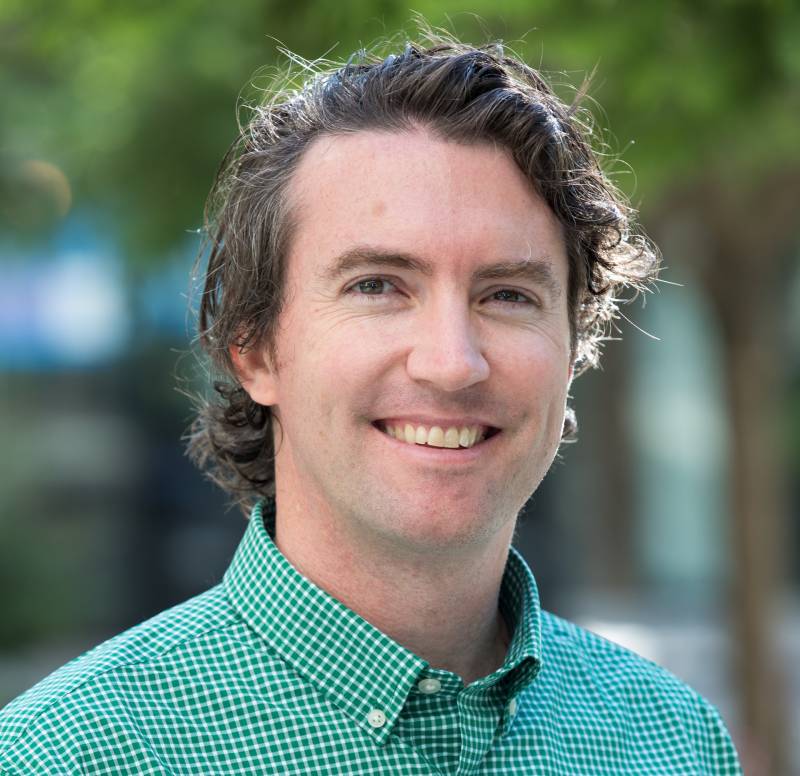A hungry man and an observant daughter lead Niall Kavanagh to consider one of our most urgent and vexing problems.
As we waited at a red light, my daughter, a first grader, asked if I had food. I looked to a bag that held a pastry, still warm, on the car floor. She had refused it just minutes ago, and I expected it to be mine.
“Are you hungry?” I asked.
“No,” she said. “But he is.”
She pointed to a man standing on a concrete island in the middle of the busy intersection. He wore layers of dirty clothes, and held a cardboard sign that read, “Hungry for breakfast.”
I smiled, and then I didn’t. Pride of her literacy turned to shame for his hunger.
I took a breath. He stood two lanes from us. A reroute would take us off course, resulting in tardiness to school and work. In place of food, perhaps I could I offer the benefit of doubt. He probably just wanted money anyway, I told myself.
“Yes, we have food,” I said. “But we can’t reach him right now.”
The light turned green. As I turned the corner, away from Hungry Man, my daughter looked to her feet. We sat in silence for a minute.
“I want the power to create," she said, finally. “So I can build homes for homeless people.”
I listened.
“You have power,” she said. “Why don’t you do something?”
I didn’t know what to say, so I didn’t. That, perhaps, is part of the problem.
In the last four decades, homelessness in the Bay Area has grown from a problem to an epidemic. Despite its complexity, it is impossible to remain neutral in this conflict. The victims demand action, engagement, and remembering. They ask that we share the burden of their pain. By looking away, which I often do, I avoid this pain.
As my daughter stepped out for school, I imagined reuniting with her that night, wondering if she would remember this sequence, and if so, what I might offer.
I pulled the car ahead, leaving her behind. At the intersection, another red light provided space for reflection, an opportunity to change course.
The light turned green and I turned, looking forward to my reunion with my daughter.
Perhaps stopping from time to time is a start.
With a Perspective, I’m Niall Kavanagh.
Niall Kavanagh is a communications officer at the Global Brain Health Institute at UCSF. He lives in Daly City.
